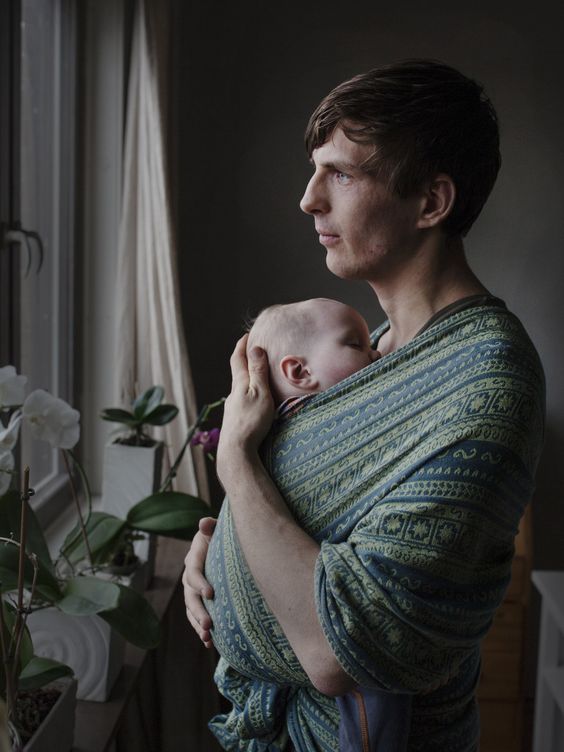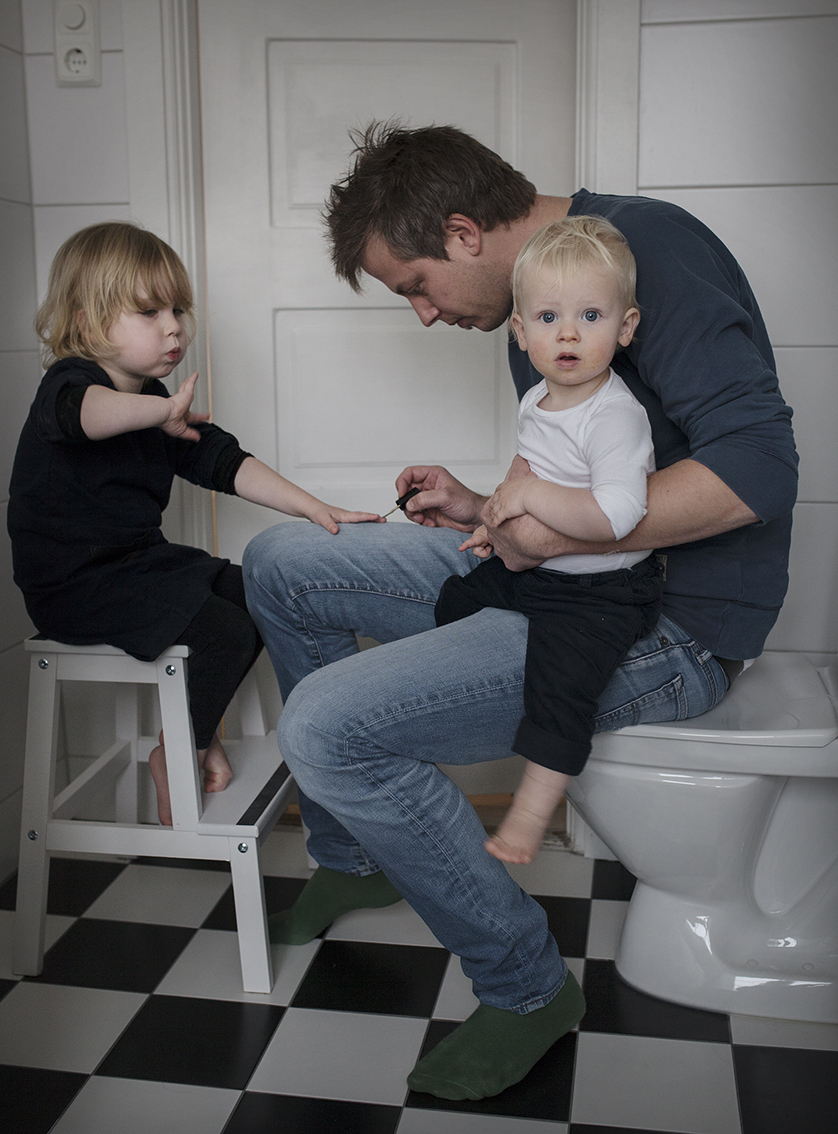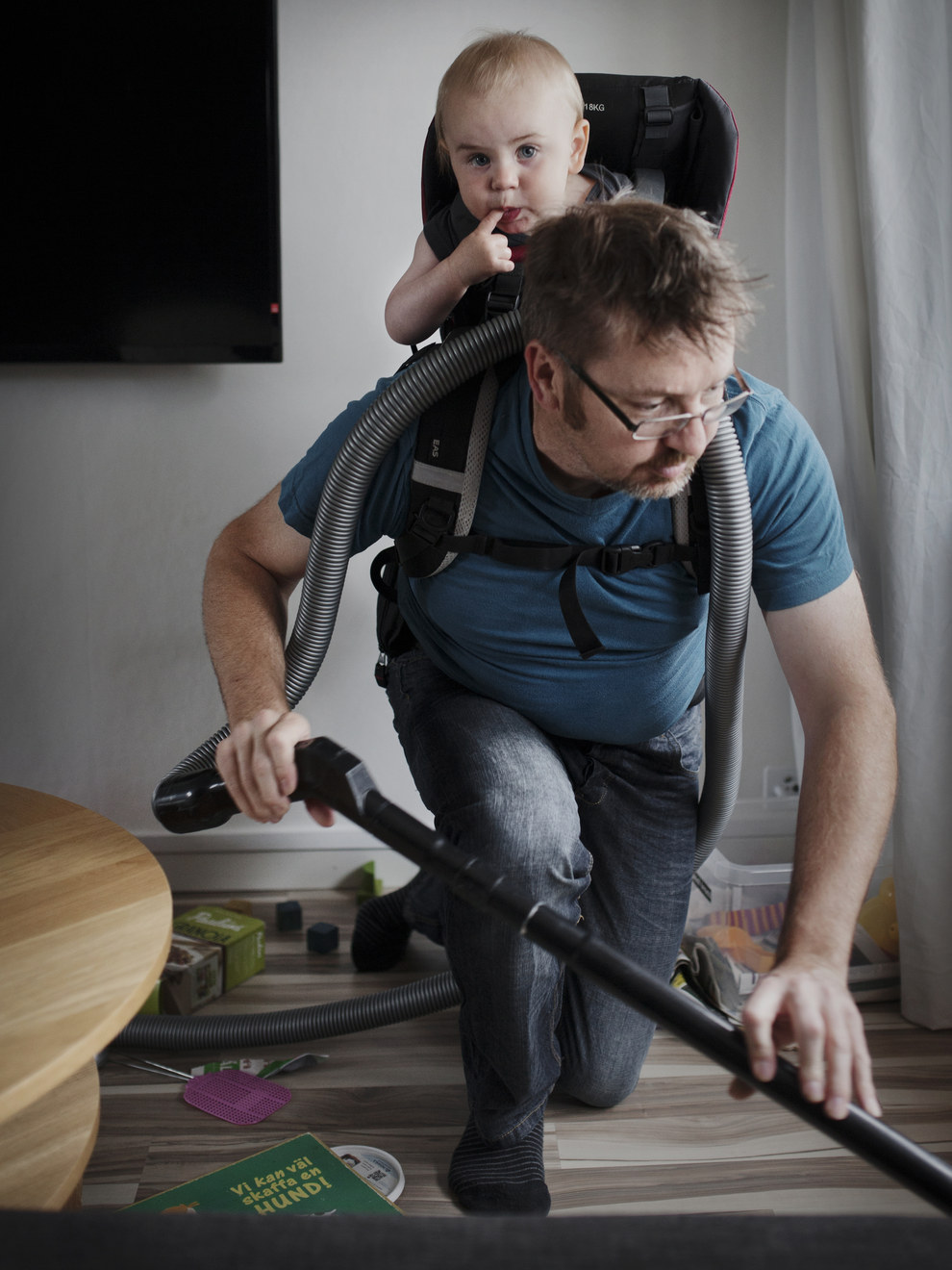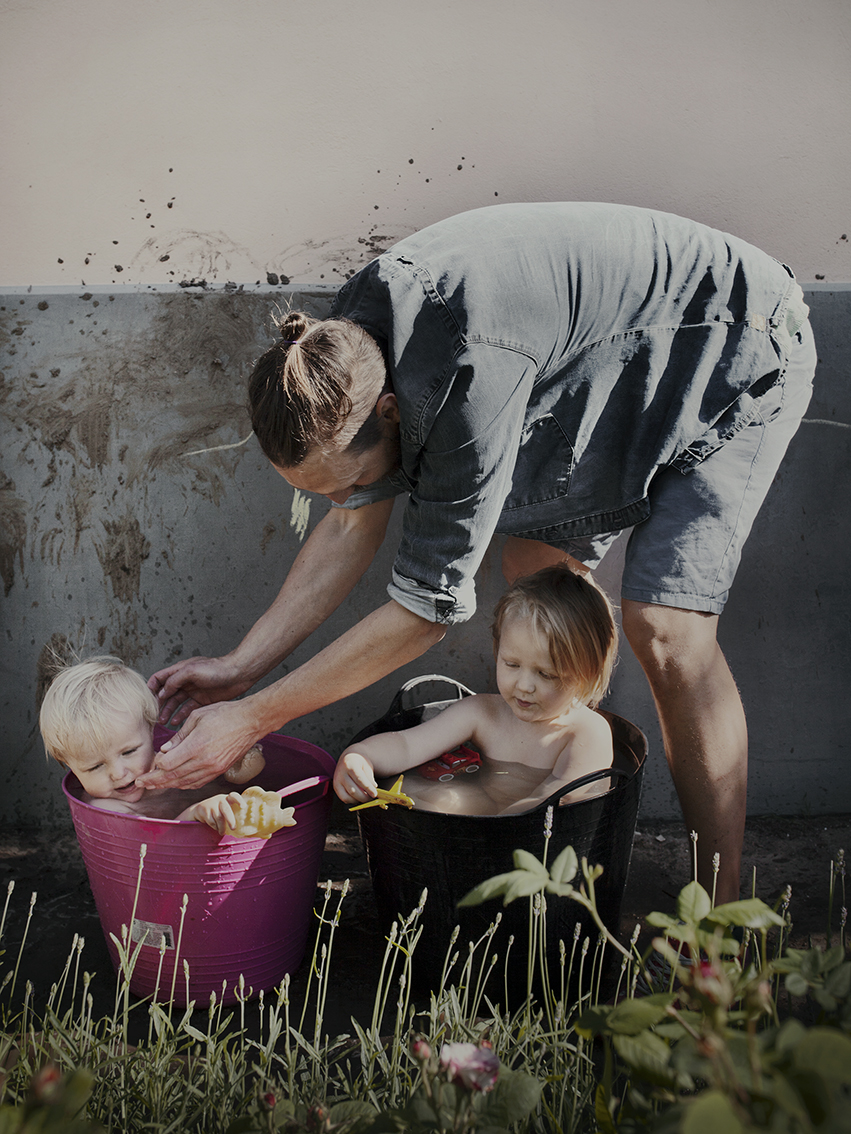
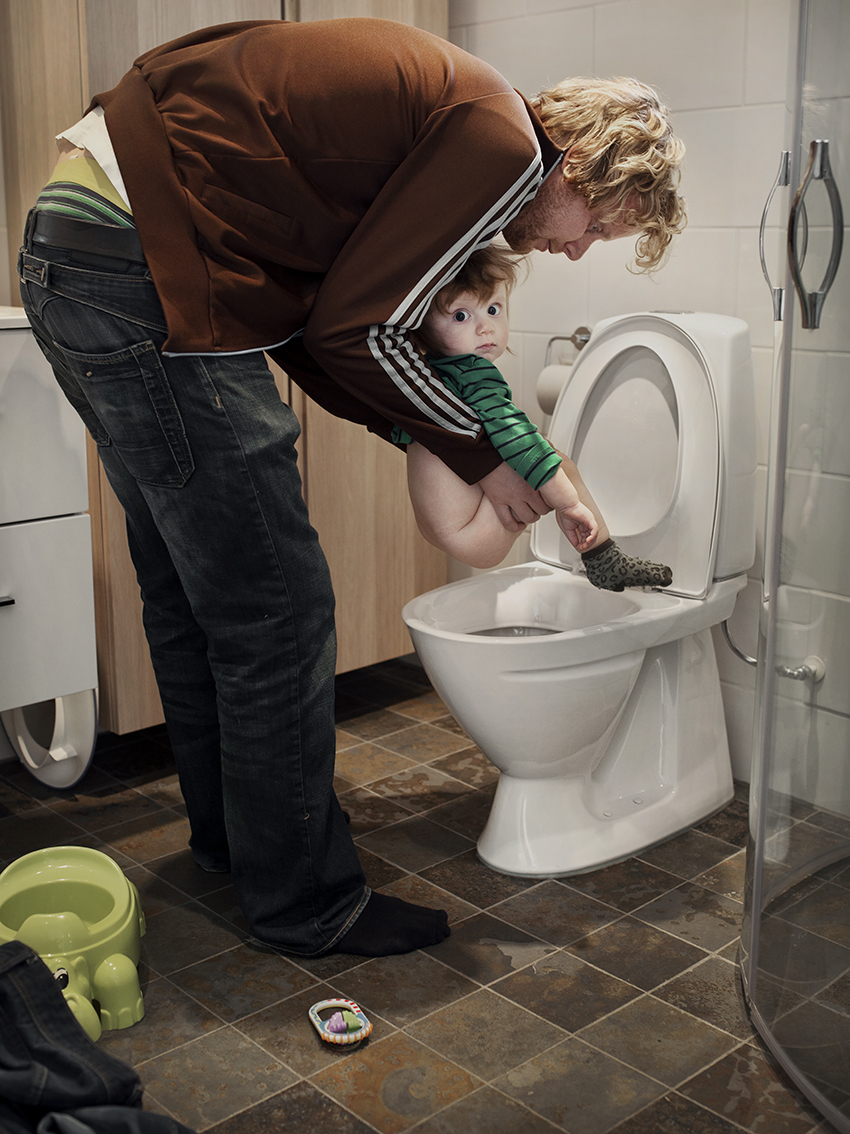
Sverige är ett av världens absolut mest jämställda länder. Vi har också ett av världens mest generösa föräldraledighetssystemen. Systemet innehåller en jämställdhetsbonus som ökar ju mer pappan är hemma. Men trots det så använder långt i från alla pappor sin föräldraledighet fullt ut.
I fotoprojektet Swedish Dads följer Johan Bävman pappor som valt att vara föräldraledig mer än sex månader. Dessa pappor har valt att vara hemma mycket längre med sina barn än majoriteten av Sveriges pappor. Johan söker svaren på frågor som: Vad har det gett dem, hur har deras relation till såväl sin partner som sina barn förändrats och vad var deras förväntningar inför ledigheten?
Han vill också berätta om den unika föräldraförsäkring som Sverige har och så ett frö hos andra pappor, i Sverige och i andra länder, om vilka positiva effekter ett generöst försäkringssystem kan ha.
Projektet redovisas i en utställning som visas i Malmö under våren och i en bok som går att köpa direkt från fotografen.
